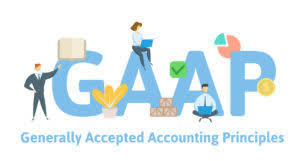

For example, there may be a cost center that provides services to only one sub-set of homeowners; those expenses, and sometimes the revenue against them, need to be tracked separately. The good news is board members don’t have to try to figure things out on their own. HOAs have the option to hire a professional, such as an HOA management company that specializes in finances, or a certified accountant, to help them maintain the financial health of their community.

The first step to financial success is to use the best HOA accounting method. As a Board member, do you currently get access to the software where your community data is stored? Do you have a library of prior financial statements you can view online? We offer the two market leading community management & accounting software used in the industry.
For basic packages, prices might start from a modest monthly fee, suitable—but still limited—for smaller HOAs with simpler financial management needs. These basic versions typically cover fundamental accounting tasks such as tracking income and expenses, generating financial reports, and managing dues collections. With the right tools, you can generate accurate and comprehensive financial reports, such as balance sheets, income statements, and cash flow statements. These reports provide a detailed view of the HOA’s financial activities, offering insights into its revenue streams, expenses, and overall financial status.
HOA accounting software also lets you produce detailed financial reports, keeping records that are accurate and readily available. HOA managers can use these insights to do their own analysis, make informed changes to their operations, and create financial statements that are indispensable for transparent communication with board members and residents. The ability to monitor financial health in real-time means that managers can be proactive about budget management and allocate funds effectively to meet the community’s needs and priorities. Under this accounting method, revenues are only reported once the association has received money, and expenses are only reported once the association makes a payment.
When it comes time for an HOA, community association management company or specialized accounting business to update their approach, the actual process is relatively straightforward. These groups simply need to phase out existing systems that are driven by manual activities and outdated technology options. Applying an industry-leading approach to HOA financial management standards means combining the right technology with a resident-friendly mindset. Homeowners Associations, as well as many other non-profit and public sector entities, have a need for special reporting to financial statements that show how money is spent, rather than how much profit was earned. Profit-oriented businesses only have one set of self-balancing accounts or general ledger. On the other hand, nonprofits can have more than one general ledger depending on their needs.

For instance, integrating accounting software with a payment gateway enables direct processing of member dues and other transactions, updating financial records in real time. Similarly, connecting with property management systems can automate the tracking of expenses related to maintenance and repairs. When using modified accrual accounting, it is important to understand how your financial statements will turn out. With the modified accrual basis method, the amounts on the balance sheet will equal the amounts for Prepaid Assessments and Assessments Receivable. The cost of HOA accounting software can vary widely depending on several factors.
Companies that utilize community association management (CAM) software from CINC can deliver unmatched accounting solutions, site management, administrative services, and AR/AP oversight, and site management for their clients. An HOA management company can streamline demand fee calculations and payoff demand report preparations with CINC Systems’ software. Comprehensive accounting tools automatically reconcile accounts and accounting for hoa create reports, and intuitive communication platforms facilitate more efficient and effective information sharing. Sending out requests for proposals can give you an accurate picture of vendor costs. Make sure to accurately evaluate the maintenance and repair costs and utility expenses by looking at what it cost you last year. Look over your reserve funds to be sure you have enough set aside for unexpected expenditures.

Third-party fraud or forgery may also be covered if money was lost due to the actions of someone working outside the scope of association business. Some community associations even opt to put their financial information on their website to allow homeowners to view it at any time. Of course, not all information needs to be publicly accessible, but you should include everything that can be included. https://www.bookstime.com/ Transparent financial processes help to promote teamwork and positive community relations between homeowners and association board members. Banks provide lockbox services to association management companies for customer payment remittals. Homeowner payments are retrieved from special post office boxes and then processed and deposited directly into the management company or HOA’s bank account.
Every significant deviation between actual income and expenses and budgeted income and expenses should be understood. All Balance Sheets contain the same categories of assets, liabilities, and owner’s equity. Many state laws require HOAs to conduct annual audits, and some will pay for an annual audit even if it’s not required by law. HOA audits can cost between $4,000 and $6,000 though, so some associations may conduct audits once every three years.